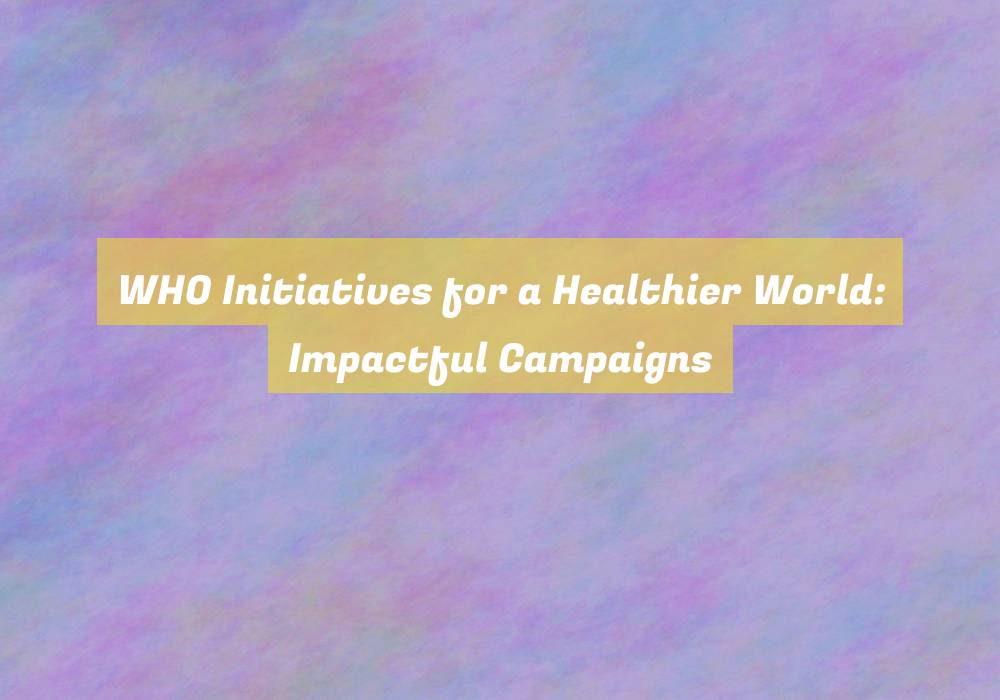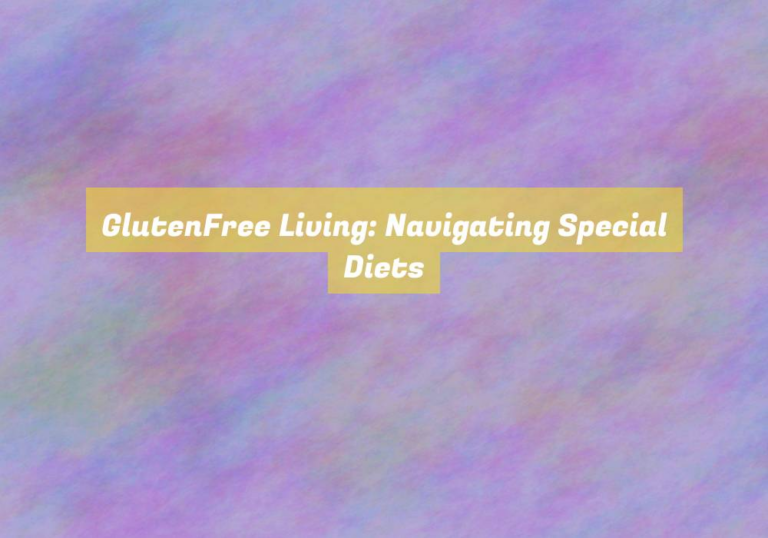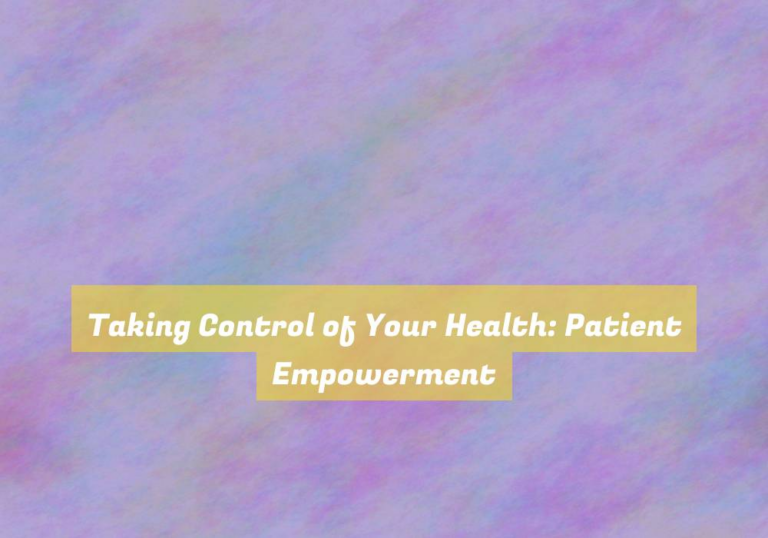WHO Initiatives for a Healthier World: Impactful Campaigns
YouG??ve probably heard about the World Health Organization and its efforts to promote global health, but have you ever considered the impact of its initiatives?
From the far-reaching effects of global vaccination campaigns to the grassroots work of disease prevention initiatives, the WHO is at the forefront of creating a healthier world.
But what exactly are these impactful campaigns, and how do they make a difference in the lives of people around the globe?
Global Vaccination Campaigns
You can join the global vaccination campaigns to help protect people around the world from deadly diseases. By getting vaccinated yourself, you not only protect yourself from potentially life-threatening illnesses but also contribute to the collective effort of achieving herd immunity. This means that when a large portion of the population is vaccinated, the spread of diseases is significantly reduced, safeguarding those who canG??t be vaccinated due to medical reasons or age.
Additionally, you can actively support vaccination campaigns by spreading accurate information about the importance and safety of vaccines. By dispelling myths and misinformation, you can help build trust in vaccines and encourage others to get vaccinated, thus further strengthening the global defense against preventable diseases.
Furthermore, you have the opportunity to support organizations and initiatives that provide vaccines to communities in need. Your contribution, whether through donations or volunteering, can make a substantial difference in ensuring that vulnerable populations have access to life-saving vaccinations, ultimately saving lives and preventing the spread of infectious diseases worldwide.
Disease Prevention Initiatives
Joining the global vaccination campaigns not only protects individuals from deadly diseases but also contributes to broader disease prevention initiatives worldwide. Disease prevention initiatives encompass various strategies aimed at reducing the incidence and impact of illnesses on a global scale. These initiatives emphasize the importance of promoting healthy behaviors, implementing vaccination programs, ensuring access to essential medicines, and improving public health infrastructure. By actively participating in disease prevention initiatives, individuals can help curb the spread of infectious diseases and minimize the burden on healthcare systems.
Moreover, disease prevention initiatives play a crucial role in addressing non-communicable diseases such as cardiovascular diseases, diabetes, and cancer. Encouraging regular physical activity, healthy eating habits, and tobacco cessation are pivotal components of these initiatives. By adopting preventive measures, individuals can significantly reduce their risk of developing chronic conditions and improve their overall health outcomes.
Furthermore, disease prevention initiatives encompass early detection and prompt treatment of diseases, ultimately leading to improved health outcomes and reduced mortality rates. Regular health screenings, timely access to healthcare services, and health education programs are essential components of these initiatives. By prioritizing disease prevention, individuals can contribute to building healthier communities and a more resilient global population.
Health Education Programs
Health education programs are essential for equipping individuals with the knowledge and skills necessary to make informed decisions about their health and well-being. These programs play a crucial role in promoting positive health behaviors, preventing diseases, and improving overall well-being. By providing information on topics such as nutrition, exercise, disease prevention, and mental health, these initiatives empower individuals to take control of their health.
Through interactive workshops, informational materials, and community outreach efforts, health education programs effectively raise awareness and promote healthy lifestyles. These initiatives also address specific health issues, such as tobacco use, substance abuse, and sexual health, by delivering targeted education and resources to at-risk populations.
Moreover, health education programs are instrumental in promoting health equity by ensuring that all individuals have access to vital health information and resources. By reaching diverse communities and addressing cultural and linguistic barriers to health education, these programs contribute to reducing health disparities and improving overall public health outcomes.
Humanitarian Aid and Emergency Response
Amid crises and disasters, swift and coordinated humanitarian aid and emergency response are essential for saving lives and mitigating suffering. When disasters strike, such as natural calamities or conflicts, the immediate deployment of medical teams, supplies, and essential services is crucial.
Humanitarian aid organizations, including the World Health Organization (WHO), work tirelessly to provide medical care, clean water, shelter, and sanitation facilities to affected populations. These efforts are vital in preventing the spread of diseases and reducing the impact of emergencies on public health.
In addition to rapid response, long-term support is also necessary to help communities rebuild and recover. WHOG??s involvement in emergency response extends beyond the initial crisis, focusing on rehabilitation and strengthening healthcare systems to better withstand future challenges. By providing technical expertise, training, and resources, WHO contributes to the development of resilient healthcare infrastructure in disaster-prone regions.
The effectiveness of humanitarian aid and emergency response relies on collaboration between governments, international organizations, and local communities. It requires efficient coordination, resource mobilization, and a deep understanding of the specific health needs in crisis situations. Through these concerted efforts, lives can be saved, and the impact of emergencies on public health can be minimized.
Conclusion
YouG??ve learned about the impactful WHO initiatives for a healthier world, including global vaccination campaigns, disease prevention initiatives, health education programs, and humanitarian aid and emergency response.
These campaigns are making a difference in communities around the world, saving lives and improving overall health.
By supporting these initiatives, you can contribute to creating a healthier and more resilient global population.







It’s interesting how the WHO’s initiatives, especially in vaccination, intertwine with global health equity. While vaccination campaigns aim for herd immunity, they also raise questions about access and distribution. Those in low-income regions often bear the brunt of vaccine disparities, leading to a cycle of vulnerability. For instance, during the COVID-19 pandemic, we saw stark differences in vaccine rollout between wealthy countries and those struggling with infrastructure.
You made a really important point about the WHO’s vaccination initiatives and the stark inequalities in access. It’s fascinating—and frustrating—how public health strategies can sometimes overlook the realities on the ground, especially in low-income regions. The COVID-19 pandemic really highlighted those disparities; you had countries with advanced healthcare systems stockpiling vaccines while others struggled just to get a few doses.
You bring up a really important point about how the WHO’s vaccination initiatives highlight the ongoing challenges of global health equity. The disparity you mentioned during the COVID-19 pandemic really emphasized the structural inequalities in healthcare. It was disheartening to see wealthier nations securing supplies while many low-income countries struggled to get enough vaccines.